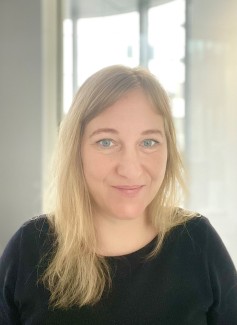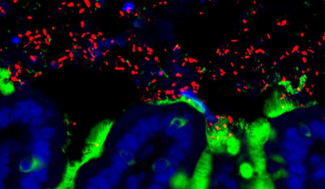
SCHMIDT Liane
Title: PhD
Function: Team Leader, PI
Affiliated entities Inserm
Biography
Liane Schmidt received her Ph.D. in Cognitive Neuroscience from the Pierre and Marie Curie University in the Mathias Pessiglione team. She then began post-doctoral research training in the Department of Psychology at Columbia University in New York, on the research teams of Daphna Shohamy and Tor D. Wager. She also worked in the Marketing Department of INSEAD in Fontainebleau with Hilke Plassmann and Pierre Chandon. In 2017, she obtained an IP position at INSERM (Institut national de la santé et de la recherche médicale) as a full researcher affiliated with Paris Brain Institute, where she founded her research team (Contrôle-Interoception-Attention) in 2019.
Research
His research aims to understand how a person's beliefs, states of mind, expectations and self-suggestions influence his or her motivation, decision-making, interoception and responsiveness to medical treatment. Liane Schmidt combines cognitive neuroscience tools such as functional magnetic resonance imaging, behavioural testing and computer modelling to exploit potential neurocognitive mechanisms that lead to expectations and effects on mindfulness in healthy participants and patients with psychiatric illnesses such as depression and autism.
Main publications
- Schmidt, L., Tusche, A. Manoharan, N., Hutcherson, C., Hare, T. and Plassmann, H.* (2018), “Neuroanatomy of the vmPFC and dlPFC Predicts Individual Differences in Cognitive Regulation During Dietary Self-Control Across Regulation Strategies”, Journal of Neuroscience, 38(25), 5799-5806.
- Schmidt, L., Skvortsova, V., Kullen, C., Weber, B., & Plassmann, H. (2017). How context alters value: The brain’s valuation and affective regulation system link price cues to experienced taste pleasantness. Scientific Report, Scientific Reports, 7, 8098.
- L. Schmidt, T.D. Wager, D. Shohamy: Mind matters: Placebo enhances reward learning in Parkinson’s disease. Nature Neurosciences 17, 1793-1797 (2014);
- L. Schmidt, B. Forgeot d’Arc, G. Lafargue, D. Galanaud, V. Czernecki, D. Grabli, M. Schüpbach, A. Hartmann, R. Lévy, B. Dubois and M. Pessiglione: Disconnecting force from money: the effects of basal ganglia damage on incentive motivation. Brain 131, 1303-10 (2008);
M. Pessiglione, L. Schmidt, B. Draganski, R. Kalisch, H. Lau, R.J. Dolan, C.D. Frith: How the Brain Translates Money into Force: A Neuroimaging - Study of Subliminal Motivation. Science 316, 904 (2007)






